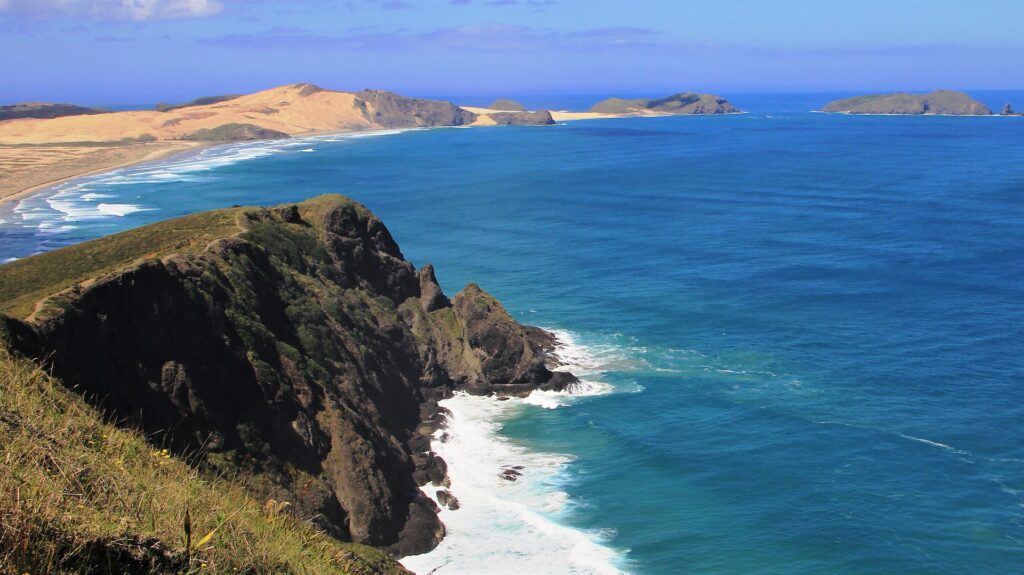Research from New Zealand’s National Institute of Water and Atmospheric Research (NIWA) has predicted that the frequency of the country’s marine heatwaves will at least double by 2100, even if global temperature rise is kept to 1.5ºC.
Conducted in partnership with the Deep South Challenge: Changing with our Climate – a government-backed platform to help New Zealanders to anticipate, adapt, manage risk and thrive in a changing climate – the study warns of very long and “very severe” marine heatwaves by the end of the century, should anthropogenic emissions continue on their current course.
Marine heatwaves occur when water temperatures stay in the warmest 10% of historical observations for at least five days, a phenomenon that is already becoming a common experience for New Zealanders.
The new research states that by 2100, the 40-odd marine heatwave days currently experienced in a normal year in New Zealand will increase to between 80 days (low emissions, best-case scenario (SSP1 2.6)) and 170 days (high emissions, worst-case scenario (SSP3 7.0)) by the end of the century. For some regions, such as southern tip of the South Island, there is a high chance that marine heatwaves start to last more than a year.
The research also explores the intensity of future marine heatwaves, or just how warm they will be. For coastal waters, average marine heatwave intensities will increase by 20% (best case) to 100% (double, worst case) by the end of the century. For the North Island, this means an average marine heatwave could be between 0.5°C to 2°C more intense than they are today.
Dr Erik Behrens, research lead and ocean modeler at NIWA, said, “The impacts of climate change are happening all around us and New Zealand isn’t immune. We’re just coming off the back of one of our most intense marine heatwaves, like what we experienced in 2017. Our work indicates that this will start to become the norm as time goes on. Marine heatwaves can have significant impacts both at sea and on land. They kill off corals, disturb ecosystems, and can also pose a problem for fishing and aquaculture, as well as contributing to land heatwaves and climate extremes across the country.
“What is particularly interesting is the disparity between regions, with some coastal areas predicted to experience a much bigger intensity, frequency and duration of warming seas than others. This is important to know so we can focus our efforts in helping marine ecosystems adapt to these changing conditions,” he said.
The analysis draws on the New Zealand Earth System Model and its high-resolution ocean grid. The grid helps understand smaller-scale ocean processes (as opposed to vast oceanic currents, for example), making more accurate regional assessments possible.
Kate Turner, Climate Change Knowledge Broker at the Deep South Challenge, said, “We’re excited that research like this is now possible, giving locally relevant, and even coastal, insights into climate impacts in our oceans. These projections also tell us we need to start adapting to our changing climate now.”
Tony Craig, a partner with marine consultancy Terra Moana, said that both industry and recreational fishers are already noticing changes in the kinds of species that are caught and where. “It’s hard to see current fisheries being resilient enough to withstand increases between 80 and 100% of median marine heave wave intensities by the end of the century,” he said.
To view the full paper, published in Frontiers in Climate, click here.



